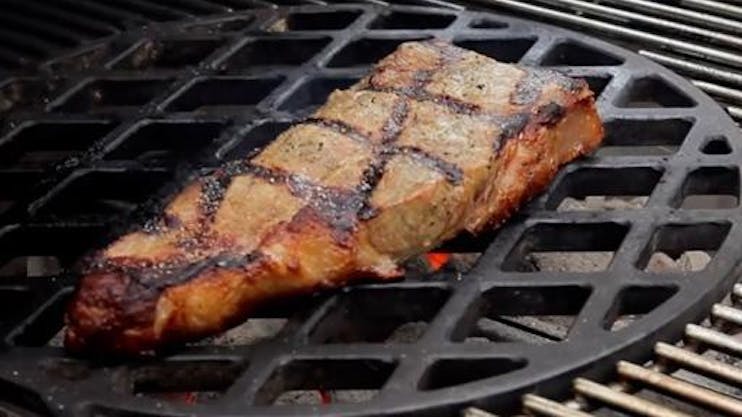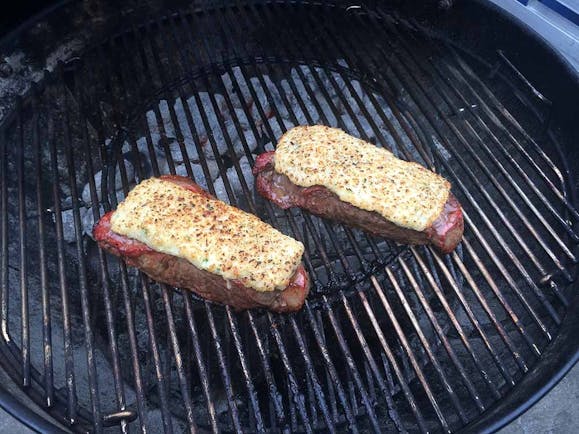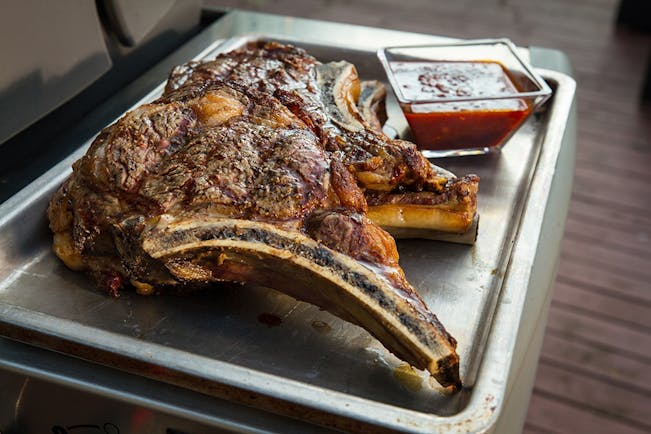Grilled Steaks: The Reverse Sear
If there is one thing I love to grill more than anything else, it’s a thick bone in ribeye cooked medium rare.
For me, there is nothing better. Now while this type of steak may seem straightforward to grill, its size can be tricky if you want a well charred crust and an even, warm pink center. It is for this exact reason I use a “reverse sear.” For my steaks, I take nothing to chance.
Most steaks up to an inch thick can be cooked over direct high heat. However, thicker steaks need a little finessing. With an even “wall to wall” pink center being the goal, thick steaks cooked over direct heat will hit their target temperature closer to the crust much sooner than the middle of the meat.
A uniformly cooked center is about impossible. To avoid this, and still reach our goal, use a two zone fire with all of the coals pushed to one side of the kettle and nothing on the other.
Over the side of the grill without charcoal, cook the steak to about 10 degrees of its target temperature. For instance, for medium rare at 130 Fahrenheit, move the steak at 120 Fahrenheit. By slowly bringing the meat to temperature, it ensures uniformity. In this case, an instant read thermometer or iGrill is a must to check the temperature.
Once the -10 degree temperature is obtained, the steak is seared directly over the hot coals to create that excellent charred crust. When the final temperature is met, remove the steak from the grill and allowed to rest about 10 minutes.
An added benefit to the reverse sear, is not only cooking a great medium rare steak, but also for my more finicky friends, a more medium to well done cut.
Yes, while it might seem sacrilegious to grill steak to that degree, one of those “finicky friends” happens to be my wife, so, needless to say, I make it happen. More importantly, she likes it. A lot.
By slowing bringing the steak to temperature, and finishing with a hot sear, the result is a wonderful, evenly cooked steak with a crust to die for. It’s the best of both worlds.


